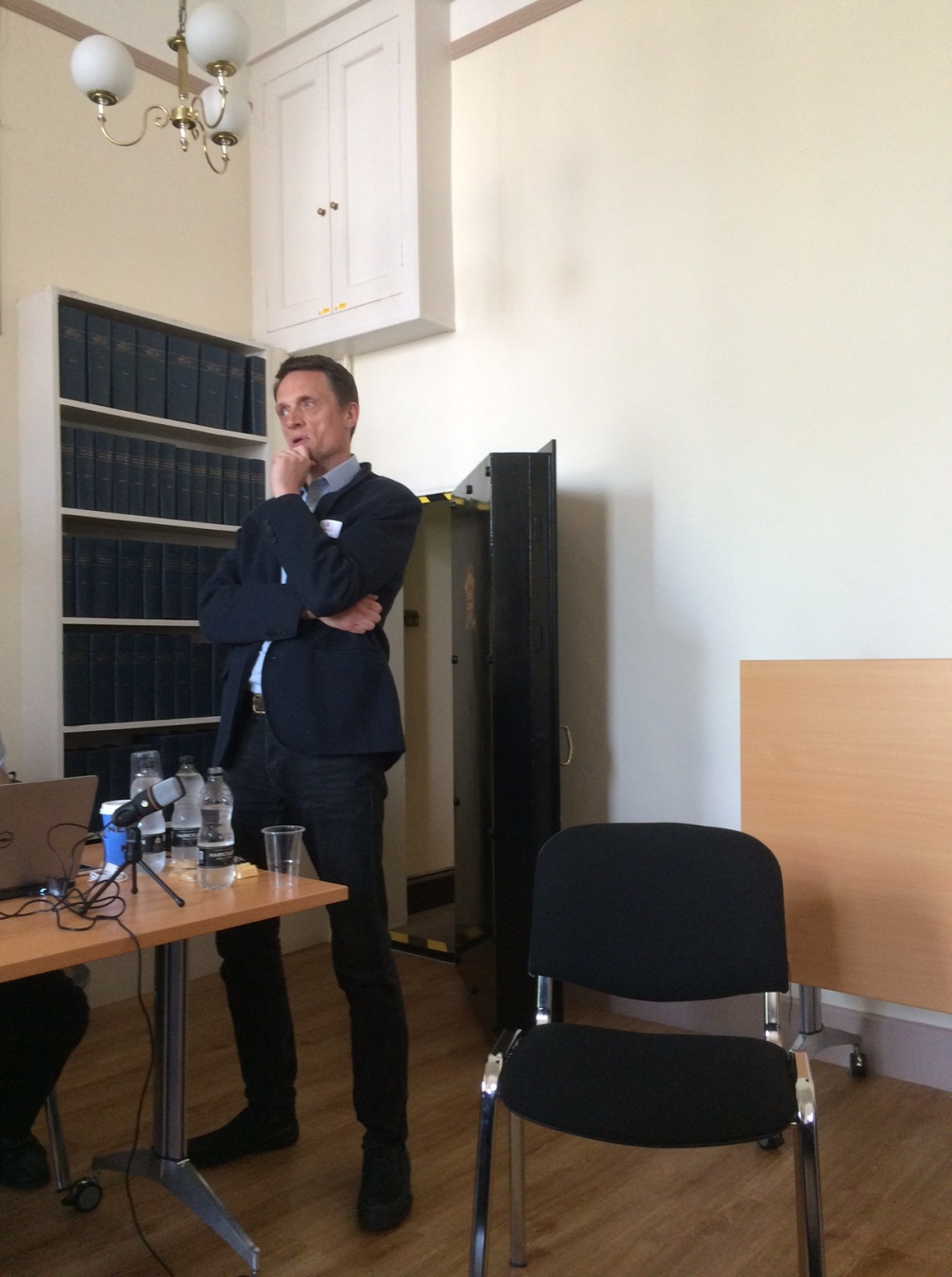 Matthew was a rather different speaker from the others that attended our Innovation Month of talks. Rather than coming from a business background accompanied by practical examples, here was sociologist steeped in governmental policy and theory. Needless to say it was a thought provoking and challenging talk that will take many of us some time to digest.
Matthew was a rather different speaker from the others that attended our Innovation Month of talks. Rather than coming from a business background accompanied by practical examples, here was sociologist steeped in governmental policy and theory. Needless to say it was a thought provoking and challenging talk that will take many of us some time to digest.
Matthew talked about some of the societal changes and world views that are surfacing all over England.
As a nation we have been happy to be governed but things are changing, there is a desire to be governed less and to take more control for ourselves but still not yet wanting to govern ourselves.
In addition there is a shift from the old world to the new world and the diversity of people and culture that’s brought as part of the global village.
Lastly there was an interesting application of Maslow’s hierarchy of needs where as a nation we have come to expect our basic needs to have been met but as an individualistic society we want to be creators of our own solutions.
This set the scene for a slightly different take on innovation, rather than smaller changes that can be quickly tested and implemented the challenge was for larger systemic change. He challenged us to look at change as a system and try to understand the equilibrium that keeps things together currently and develop reasonable theories of how things could be done better, always understanding that small changes will have cause and effects.
No mean task then! So where do we find these people that come up with ‘reasonable theories’? Are these people further up the evolution scale than us, with a mutant ability to see in the round? No because it’s not a top down approach we need, but a bottom up approach, we need people that have lived and breathed in a broken system to connect the dots. This means social workers, contact centre staff, carers, those working on the front line who understands the broken systems they work in and what holds them together.
The next step is to act like an entrepreneur so be dynamic, move quickly and embrace failure as part of the process. We need to test the theory quickly and measure the cause and effect it has when the equilibrium moves, we need to react to it so the system changes but doesn’t fail completely.
How do we build the right team to deliver this? Matthew cited the London Challenge team which has documented success in changing the quality of schooling in London and then laid out his own Coordination theory that ensures that the team has the right characteristics
- Hierarchal – believes in systems, leadership and strategy
- Solidarity – believes we should galvanise around a cause, having a common driver for change
- Individualism – wants to maximise the scope for people to do their own thing and come up with solutions that fit them best
- Fatalism –nothing we can do that will have a significant impact, ultimately we are governed by factors outside of our control
To develop innovation and change we need a leadership team of people that are strong on the characteristics above, particularly the first three with tan acceptance of the last. This type of leadership team combined with a team of people who have experience of working in the broken system should be able to develop insights and solutions along with a team to deliver that change!
Sounds simple doesn’t it! I like the theory but I suspect that human desire to find people just like themselves would ensure this isn’t a long term situation but a possible project team that can be created. In all it lends itself very well to AGILE working and how we select the right teams to deliver these projects, there probably are more thoughts I have but this blog post is long already and I will link you back to Matthew’s blog which outlines his theory